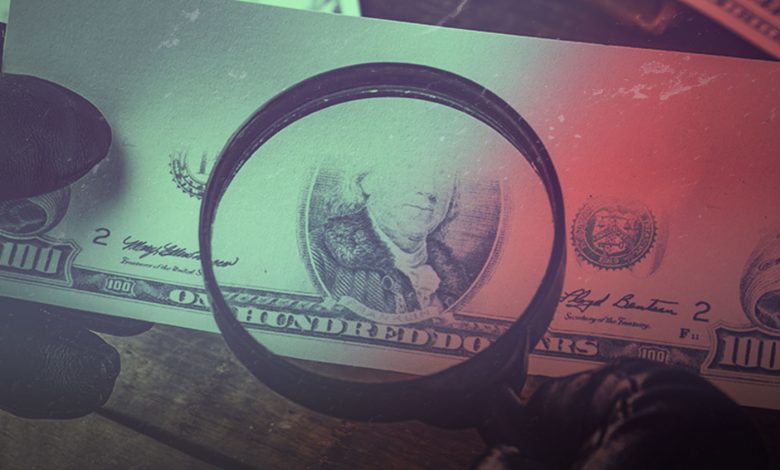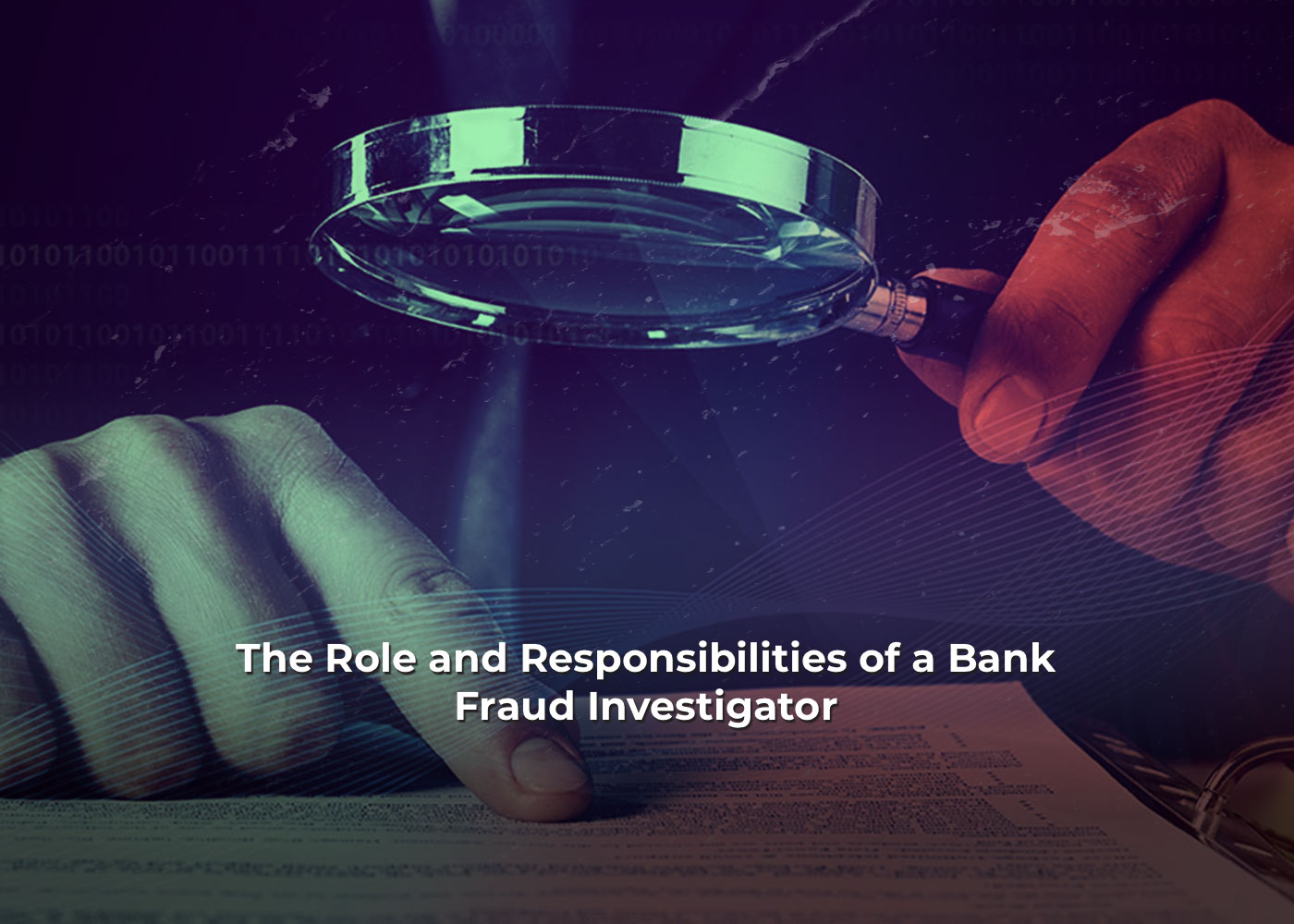The Role and Responsibilities of a Bank Fraud Investigator
A bank fraud investigator plays an important role in uncovering and investigating suspected fraud or unethical business behavior . They possess a wide range of skills and knowledge related to fraud laws, evidence gathering and interviewing techniques .

A bank fraud investigator plays an important role in uncovering and investigating suspected fraud or
unethical business behavior . They possess a wide range of skills and knowledge related to fraud
laws, evidence gathering and interviewing techniques . Depending on the organization's structure a
fraud investigator can work as part of a team or lead a team of investigators . They handle reports of
suspicious activity and collaborate with other team members or department heads like corporate
security, compliance or audit . Some of their responsibilities include monitoring, investigating and
resolving fraudulent activities, executing fraud prevention strategies and maintaining relationships
with law enforcement agencies for criminal prosecution .
Functions and Tasks of a Fraud Investigator
Fraud investigators perform a range of functions to combat fraud and unethical practices . Some key
tasks are mentioned below.
They investigate allegations of fraud, waste or abuse committed by clients against the organization .
This involves reviewing evidence, integrating data into professional reports with recommendations
and coordinating field assignments to gather relevant information . They perform fraud risk
assessments to identify external and internal threats . They develop and apply fraud prevention and
detection processes as well as mitigation measures . They build relationships with law enforcement
agencies and ensure cases are developed and prosecuted in an effective way . They collaborate with
defense attorneys, provide deposition strategies and use law enforcement resources for assistance .
They manage a caseload efficiently and prepare prosecution packages and restitution proposals .
They monitor business reports to identify suspicious activities, analyze data to identify trends and
risks and share findings with leadership . They communicate with customers or potential victims of
fraud to gather information and make fair decisions .

Skills and Qualifications of a Fraud Investigator
Successful fraud investigators possess a broad range of skills and qualifications including:
In-depth knowledge and expertise in fraud detection, prevention and investigation within their
specific field such as insurance fraud financial fraud or cyber fraud .
Proficiency in evidence collection, fact-finding and conducting thorough, unbiased and timely
investigations . Familiarity with interviewing techniques in accordance with relevant legislation .
Understanding of key Anti-Money Laundering (AML), Terrorism Financing (TF), Financial Crime and
Sanctions legislation as well as associated regulatory guidance .
Strong analytical skills to evaluate fraud indicators, identify trends and make appropriate
recommendations for mitigation . Excellent interpersonal and communication skills to interact with
clients, upper management and law enforcement .
Ability to manage large and varied caseloads effectively, prioritize tasks and meet strict deadlines
while working under pressure . Attention to detail is crucial when dealing with different cases and
types of evidence .
A high level of honesty integrity, confidentiality and adherence to relevant security standards,
internal procedures and legislative requirements .
Final Thoughts
Bank fraud investigators play an important role in investigating and preventing fraudulent financial
acts . Their expertise investigative skills and knowledge of fraud laws contribute to uncovering facts
and evidence . Effective fraud investigators implement proactive anti fraud measures and work
together with law enforcement agencies to act against cases .




